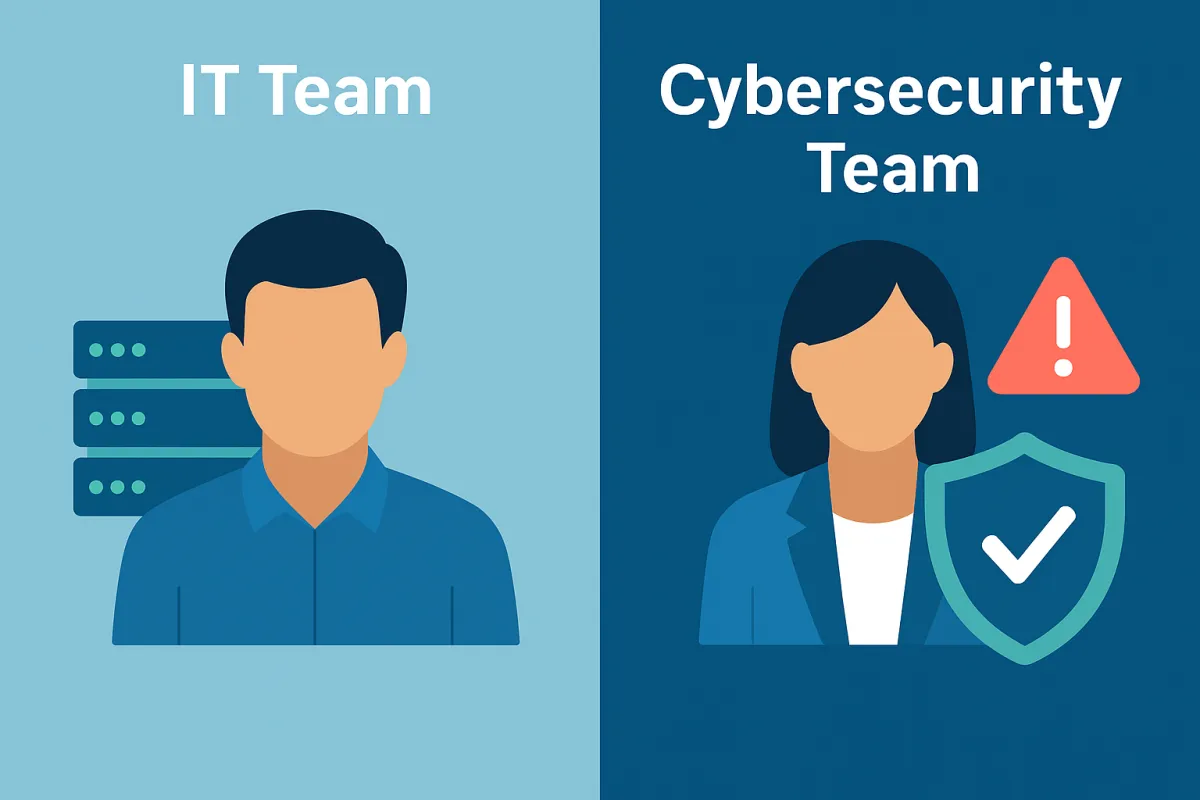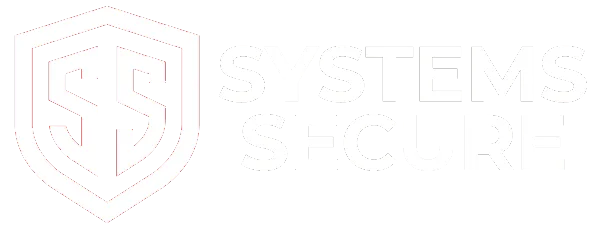Blog
Welcome to the Systems Secure Blog — your go-to resource for practical, no-fluff cybersecurity advice tailored for business owners and managers. Whether you're running a growing team or working with outsourced IT, we break down complex cyber risks into plain language and give you real-world solutions to protect your business, data, and reputation. From compliance guides and threat insights to expert tips on keeping your systems secure, we’ve got you covered.
🔒 Real advice. No jargon. Just smart, secure business.

IT vs Cybersecurity: Why Your Business Needs Both – Separately
IT vs Cybersecurity: Why Your Business Needs Both – Separately
When you hear “IT,” your first thought might be: “They sort out my computers, right?” Sure. But there’s a big difference between fixing tech issues and defending your business from cyber threats.
In this post, we’ll break down the IT vs Cybersecurity debate, explain why they should operate separately (even if outsourced), and show you how separating the two could be the smartest decision you make this year for your company’s digital safety.
Understanding the Difference: IT vs Cybersecurity
Let’s start with a clear distinction.
IT (Information Technology) teams are responsible for keeping your tech systems running. That includes things like:
Setting up workstations
Maintaining servers and networks
Managing software installations and licenses
Helping you when your printer refuses to print (again)
On the other hand, Cybersecurity is focused purely on protecting your business data and systems from threats like:
Hackers trying to breach your systems
Ransomware attacks
Phishing attempts on your staff
Insider threats or human error
These are two very different skill sets. You wouldn’t ask your accountant to draft legal contracts, right? So why expect your IT provider to handle advanced threat detection and incident response?
Why You Shouldn’t Rely on Your IT Provider for Cybersecurity
Many businesses make this critical mistake: they assume that because they’ve outsourced IT, they’ve also outsourced security. This is like hiring a cleaner and expecting them to install a home alarm system.
Here’s why that doesn’t work:
1. Conflicting Objectives
Your IT team’s goal is uptime and performance. Cybersecurity’s goal is resilience and risk reduction. Sometimes, these clash. For example, an IT team might disable a security feature to fix a user issue—leaving a door open for attackers.
2. Reactive vs. Proactive
IT teams often fix things after they break. Cybersecurity teams are proactive, constantly looking for weaknesses before they’re exploited. They test, simulate attacks, and monitor for threats 24/7.
3. Limited Expertise
Most IT teams aren’t trained in threat intelligence, penetration testing, or compliance standards like ISO 27001 or Cyber Essentials. Without that knowledge, they can’t design effective defences—especially in regulated industries.
“Cybersecurity is a dedicated discipline. If your IT support wears too many hats, something’s getting missed.” — Systems Secure
Cybersecurity Should Be Independent — Even With Outsourced IT
Whether your IT is in-house or outsourced, cybersecurity should still be its own function. Here’s what that looks like in practice:
Your IT team manages infrastructure, user support, and availability.
Your cybersecurity partner handles threat detection, compliance, policy enforcement, and breach response.
This creates checks and balances. Your cyber team audits and oversees IT actions from a security standpoint—just like having a finance auditor who isn't your bookkeeper.
Real-World Risk Example
We once helped a business that outsourced IT to a reputable provider. Everything seemed fine—until a misconfigured firewall (left unnoticed for months) exposed sensitive customer data. The IT team didn’t catch it. They weren’t trained to. A separate cyber audit team spotted it during a review.
This kind of oversight can cost you your business—or at the very least, your reputation.
Benefits of Separating IT and Cybersecurity for Your Business
Here’s what you gain by keeping them distinct:
✅ Greater accountability – No one is marking their own homework
✅ Better breach prevention – Cyber pros use advanced tools and frameworks like NIST or MITRE ATT&CK
✅ Faster response to threats – Dedicated teams know how to act fast under pressure
✅ Improved compliance – Essential for GDPR, PCI DSS, Cyber Essentials, ISO 27001
✅ Board-level reporting – Security teams help you report risks, not just technical issues
When Should a Business Invest in a Separate Cybersecurity Team?
Short answer? Now.
Longer answer: as soon as you rely on digital systems to run your business. If you:
Handle customer data
Process payments
Use cloud services like Microsoft 365 or Google Workspace
Work in regulated industries
Want peace of mind...
… then it’s time to bring in cybersecurity expertise. Don’t wait for a breach to show you why.
But Isn’t This Expensive?
Actually, it’s cheaper than a data breach.
According to IBM’s Cost of a Data Breach Report 2023, the average breach costs £3.6 million globally—and takes 277 days to identify and contain. The cost for small UK businesses may be lower in pounds, but the impact is proportionally devastating.
A good cybersecurity team helps you:
Avoid fines and legal fallout
Stay off the front page of the local news
Sleep better at night
And yes, you can outsource this too, cost-effectively.
How Systems Secure Can Help
At Systems Secure, we work alongside your IT team—not against them. We act as your dedicated cybersecurity partner.
We’re not here to replace your IT provider—we're here to make sure they’re not your weakest link.
👉 Learn more about our Security-in-a-Box service – a fully managed, monthly subscription with zero contracts and maximum coverage.
3 Key Takeaways
Cybersecurity is not IT. Different goals, tools, and skills.
Outsourcing IT is not enough. You still need a separate security function.
Separation creates accountability. This leads to better decisions, faster action, and safer systems.

Quick Links
©Systems Secure 2025
All Rights Reserved





